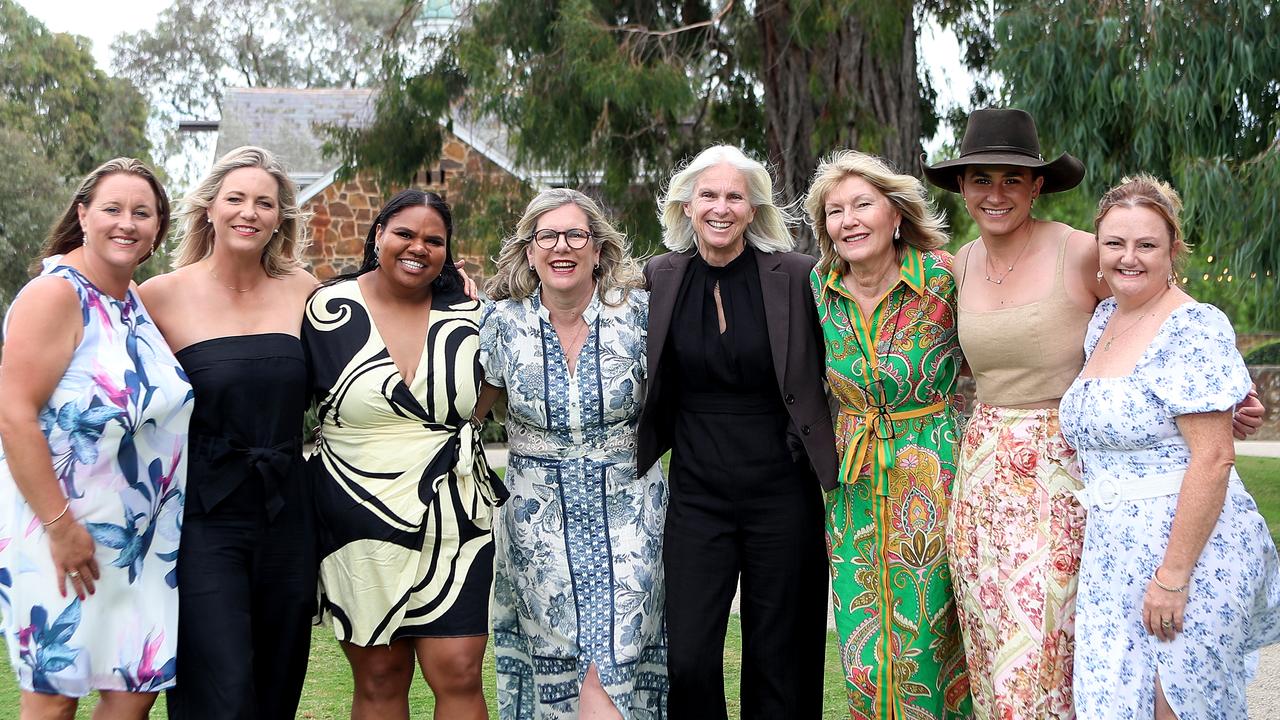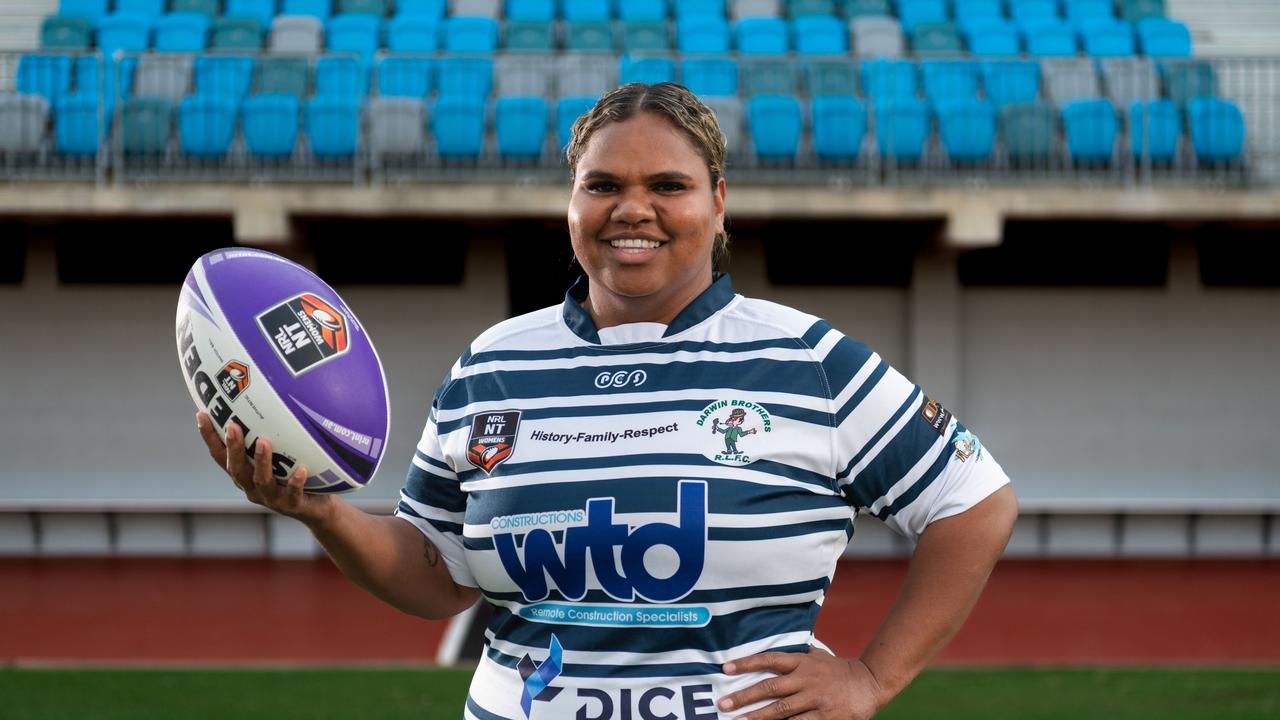Shear success: Australian women raise the bar in sheep industry
These six females manage thousands of hectares, tens of thousands of animals, and are determined to share the truth about their industries with the world.
From her beginnings on a sheep farm in Bessiebelle, Ali Davies knew she was destined for the farm life.
Her passion for working on the land hasn’t faltered through motherhood. If anything, it reminds her why she loves it.
“When I was young I knew I was going to work on the land — it was bred into me I suppose,” she said.
“I’m very lucky because I get to have my kids and work outside with animals.”
But juggling it all isn’t always easy for the Branxholme farmer, who works alongside her husband Richard across eight properties, running 30,000 ewes and rotational grazing for an investment company based in Melbourne.
“It is hard to juggle kids and farming, but my husband and I work as a good team and we get the job done,” she said.
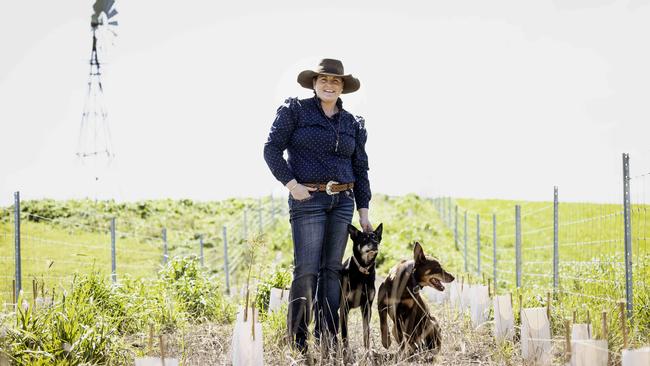
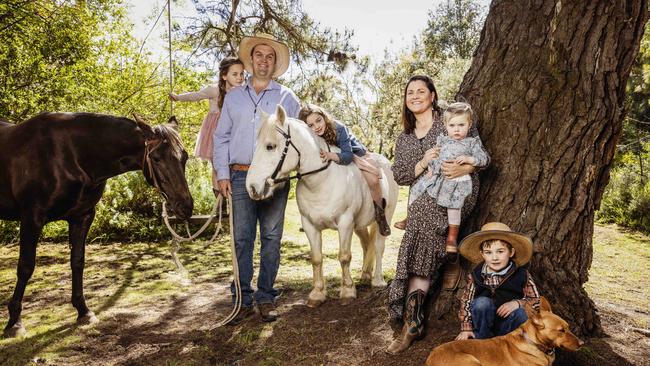
Thankfully Ali said she had good people around to help with labour on the farm and at home, including, at times, the children.
“They’re great helpers — they know how to move sheep on their own,” she said.
While her oldest three, Miley, 8, Indy, 6, and Ernie, 4, are a bit more independent now, Polly, 1, joins mum in a much cosier capacity.
“I bring Polly to work with me most days and the director of the company when he saw me in the buggy with her said ‘this is modern-day farming’,” she said.
“I did it with all of them, but it’s much easier the fourth time round.”
When asked about why she works so much — a question she admits would never be asked of her husband — she has a simple answer.
“I do it because I want to help and me working makes things work smoothly here.
“And I do it for the kids so I can give them a good life,” she said.
It’s this commitment to hard work that her and husband share that has gotten them to where they are now — with eight times as many properties and 38 times as many animals as when they started.
“We started with 800 ewes with the goal of getting to 30,000, and we’ve done that in four-and-a-half years,” she said.
“Now that the farm is set up and the sheep is where we want, it’s getting easier but it has been a whirlwind to get it where we want it.
“It’s all down to hard work and dedication.”
And if this all wasn’t enough, Ali also organises and runs her local dog trials and campdrafts, because as her husband put its best: “she’s got a huge heart and nothing is ever too hard”.
“I love doing stuff that makes people happy so I really enjoy running dog trials,” Ali said.
Ali said she was flattered to be recognised as one of more than 150 women nominated so far for this year’s Shine Awards.
“I think it’s lovely that I’ve been acknowledged because I work pretty hard.”
The sheep and wool industries are well represented among Shine nominees this year.
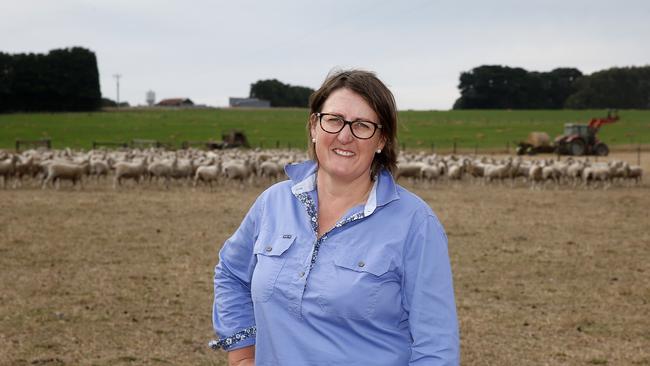
PAULA RICHES, IRREWILLIPE, VICTORIA
Growing up on a Merino stud, Paula Riches has always loved sheep and wool.
These days, however, she has much more than just one flock to think about.
She and her husband, Chris, manage first-cross ewes for prime lambs, and wool as a bonus, run an ag contracting business and also recently made the move out of dairy to build up a beef cattle herd.
Paula is hands-on in all respects, but also the driving force behind their involvement in accreditation programs, which ensure consumers know exactly how the family produces food and fibre.
“You are not always going to be the best producer, but you want to be in the sphere of people who are doing the most they can,” she said. “It all fits in with the increasing consumer demand of wanting that lifetime traceability of an animal as well. I want to know what I’m eating, so does everybody these days.”
If she’s not updating animal health records or checking on livestock, Paula can be found lending a listening ear to anyone who needs it.
She believes rural mental health deserves more attention, so works hard to stay connected with people in her community.
“You just try to do thing to help where you can and be involved. It is compassion,” she says.
“You can’t fix everything, but you can be there.”
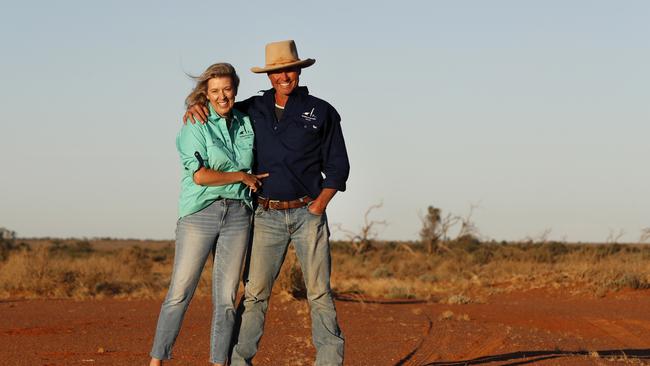
JACINTA CULLEN, BROKEN HILL, NSW
Jacinta Cullen made a life-changing move when she was just 23, moving from Melbourne to NSW’s Broken Hill in 1995 to be with the love of her life, Brendan.
The young couple started their journey in agriculture armed with the bare essentials: a card table, two chairs, plenty of energy and good humour.
Despite years spent living in shearing quarters, battling droughts, mice plagues and floods, Jacinta said she wouldn’t change things for the world.
Brendan is now a successful farm manager on a 60,000ha station near Broken Hill, where the family lives. With two children at boarding school and one in her third year of university, Jacinta now puts her energy into mental health support services for rural Australians.
The mother of three is a project officer for Lifeline Broken Hill Country to Coast.
She took the role after six years working for the Royal Flying Doctor Service.
“I’m still in the line of helping people. That’s what I like to do,” she said.
People are her work priority, but the flock is also a passion.
“To be ultimately responsible for so many mouths, it gives you a sense of pride,” she said. “That’s why when you are in drought, it is so hard. It is tough when it’s tough. But once it’s good again, the mind does this wonderful thing and makes you forget.”
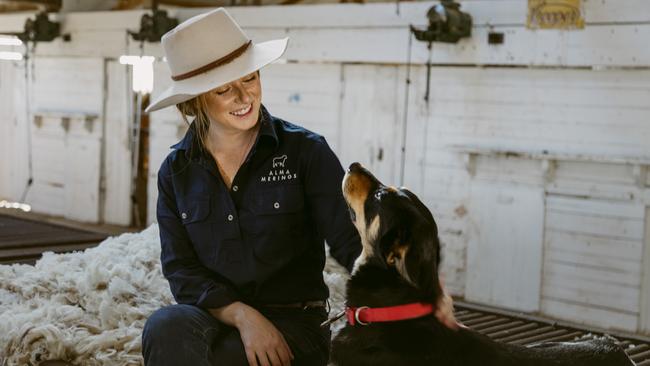
ZELDA CHAMBERS, BOOLIGAL, NSW
Zelda is part of a new breed of inspirational young women doing their best to promote rural Australia.
After growing up overseas, Zelda returned with her family to Australia, where she started a journalism career in Adelaide.
Three years ago, she branched in a new direction, moving with her partner to his family’s Alma sheep station, at Booligal, NSW.
“It’s been a hell-of-a journey considering I had zero experience living or working on farm,” said the 26-year-old. “I’ve absolutely loved becoming more hands-on at Alma over the last few years and spend a lot of time learning about the unique environments and landscapes on the property.”
Zelda now balances work as a publicist for the Regional PR Co with learning the ropes of running more than 14,000 Merinos.
“I’m not sure if I’ve got the balance quite where I’d like it just yet, but I do share my time between my PR and comms work and farm work,” she said.
“My passion lies in creating opportunities for rural businesses and primary producers to discuss the unique challenges they face on a daily basis, in the hope it might lead to positive change.”
While promoting rural businesses through storytelling has been an easy shift, getting to grips with mustering, trough runs and stock work has been a steep learning curve.
“When I first moved out to Alma, it took me a while to accept that I had to go all the way back to square one to learn the ropes properly,” she said. “There are many components of this industry that I love and are constantly inspired by. At the root of it all is my affection for the animals themselves.”
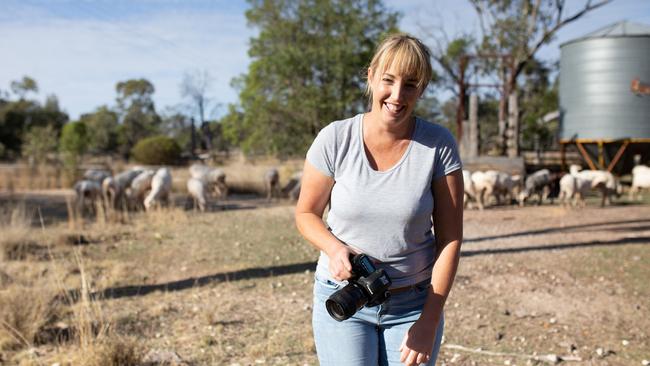
CHANTEL MCALISTER, GOONDIWINDI, QLD
Chantel McAlister is known as the woolclasser-photographer who documents life inside Australia’s shearing sheds, to share the “Truth about Wool”.
Her photo campaign has been years in the making, as Chantel and her partner, Jas, travelled across Australia for his work as a shearer.
Sadly, the pandemic has put the brakes on their travels.
But it hasn’t dented Chantel’s passion for helping rural communities.
Due to border closures, she and Jas are living at Goondiwindi, where Chantel works as a rural photography coach.
“Before Covid, my family and I were travelling in a caravan and that was our main gig – raising the bar of photography in small communities,” she said.
“We never could reach as many towns and people as we liked, however come Covid and being forced to adapt all of my photography workshops, coaching and courses to the online realm, well I have reached budding rural photographers not just right across the country, but across the globe.”
Maja Weiland is one of her students.
“She is making so many rural woman happy by giving them the skills to create,” Maja said.
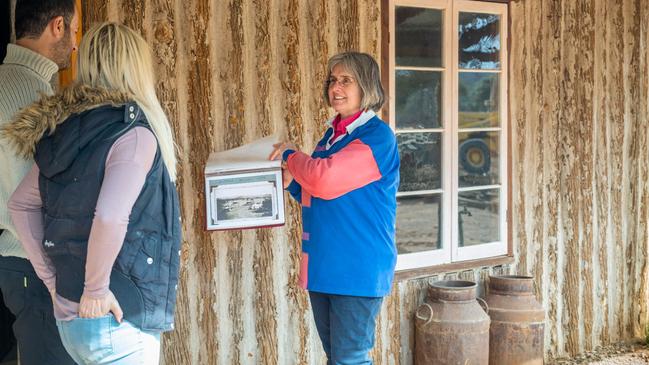
SALLY HENERY, ALPANA STATION, SOUTH AUSTRALIA
For Sally Henery, sharing her experience in the sheep industry with others has become a full-time job.
She and her husband, David, and their son, John, and his family, run Merinos on Alpana Station, in the Flinders Ranges.
The property has been in David’s family for six generations. While he is in charge of the sheep, she oversees agritourism, which is an increasingly important part of the operation.
“People that stay here, say ‘who’s the boss?’. I say it depends on which department. Mine is the tourism. David is the station and sheep,” she said.
It was Sally’s father-in-law who originally diversify into tourism, but Sally has taken the enterprise to a new level, hosting visitors, running tours and sharing the rich history of the region.
“It is great to be able to open the gates and share this beautiful side of the country we have managed to hold on to as the Henery family,” she said.
The past 13 years had brought more tough times than good seasons, but Sally said Covid had a silver lining.
“In mid-May, the Premier said to South Australians, go the regions. And 99 per cent seemed to choose Flinders Ranges and the Outback.
“Tourism-wise we have had our best couple of seasons ever.”
If you know a rural woman whose story deserves to be told, nominate her for this year’s Shine Awards in the form below, or email camille.smith@news.com.au.



